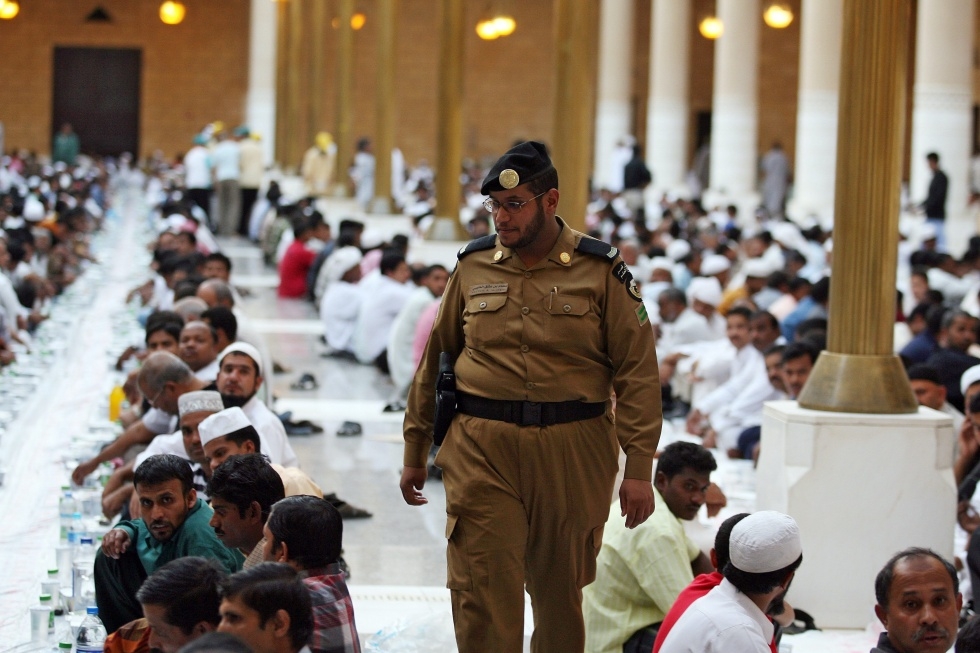Saudi minister bars clerics from discussing politics

The deputy minister of Islamic Affairs in Saudi Arabia has warned religious preachers from discussing politics in their Friday sermons, or face being barred from holding mosque-related positions.
“If the ministry finds an Imam using the sermon as a political platform they will be reprimanded and if they do not accept their mistake they will be sacked”, Sheikh Abdel Mohsen ibn Abd Alziz Alshaykh told local newspaper Okaz on Monday.
The minister said the purpose of a sermon is to “discuss social issues in relation to Sharia” and that politics has “no benefit to visitors of the mosque”, describing it as a “source of division, while mosques are a place of unification”.
Saudi Arabia has cracked down on political activity in the Kingdom recently, by designating the Muslim Brotherhood a terrorist organisation and passing counter-terrorism legislation that bars anyone from criticising authorities or calling for reform.
By banning Imams from discussing politics authorities are trying to combat a burgeoning opposition movement who are against the monarchy’s policies, according to local sources.
New MEE newsletter: Jerusalem Dispatch
Sign up to get the latest insights and analysis on Israel-Palestine, alongside Turkey Unpacked and other MEE newsletters
“Government officials sense there is a growing number of people, including religious clerics, who oppose their domestic and foreign policies and authorities are spreading fear of being imprisoned in an attempt to silence criticism”, Waleed Abu al-Khair, a human rights lawyer in Jeddah, told Middle East Eye.
Saudi Arabia supported the military coup in Egypt and has been a key financial backer of the interim government, providing billions of dollars in aid to prop up an ailing Egyptian economy. Opposition figures believe authorities are fearful of a backlash against these policies.
“Saudi Arabia has been at the heart of counter-revolutionary forces in the region, through their support for the coup in Egypt, and they are fearful of people discussing foreign policy as it may exacerbate an already growing opposition movement”, Kassab al-Otaibi, Saudi academic and opponent of the government, also told MEE.
“This ban will not stop people talking about growing social and economic problems, as can be seen by the hugely popular videos being posted by people angry with the King for not having an economic vision for the country”, Otaibi added.
There has been a wave of videos posted to YouTube by Saudis angry with the government in recent weeks, in which people show their identification card to the camera and criticise the King for not providing adequate economic opportunities in the country. The “ID protests” have received millions of views and a popular Twitter hashtag has had over half a million tweets discussing the videos.
Authorities have arrested several people in relation to the videos but more are being posted on an almost daily basis.
Middle East Eye delivers independent and unrivalled coverage and analysis of the Middle East, North Africa and beyond. To learn more about republishing this content and the associated fees, please fill out this form. More about MEE can be found here.

